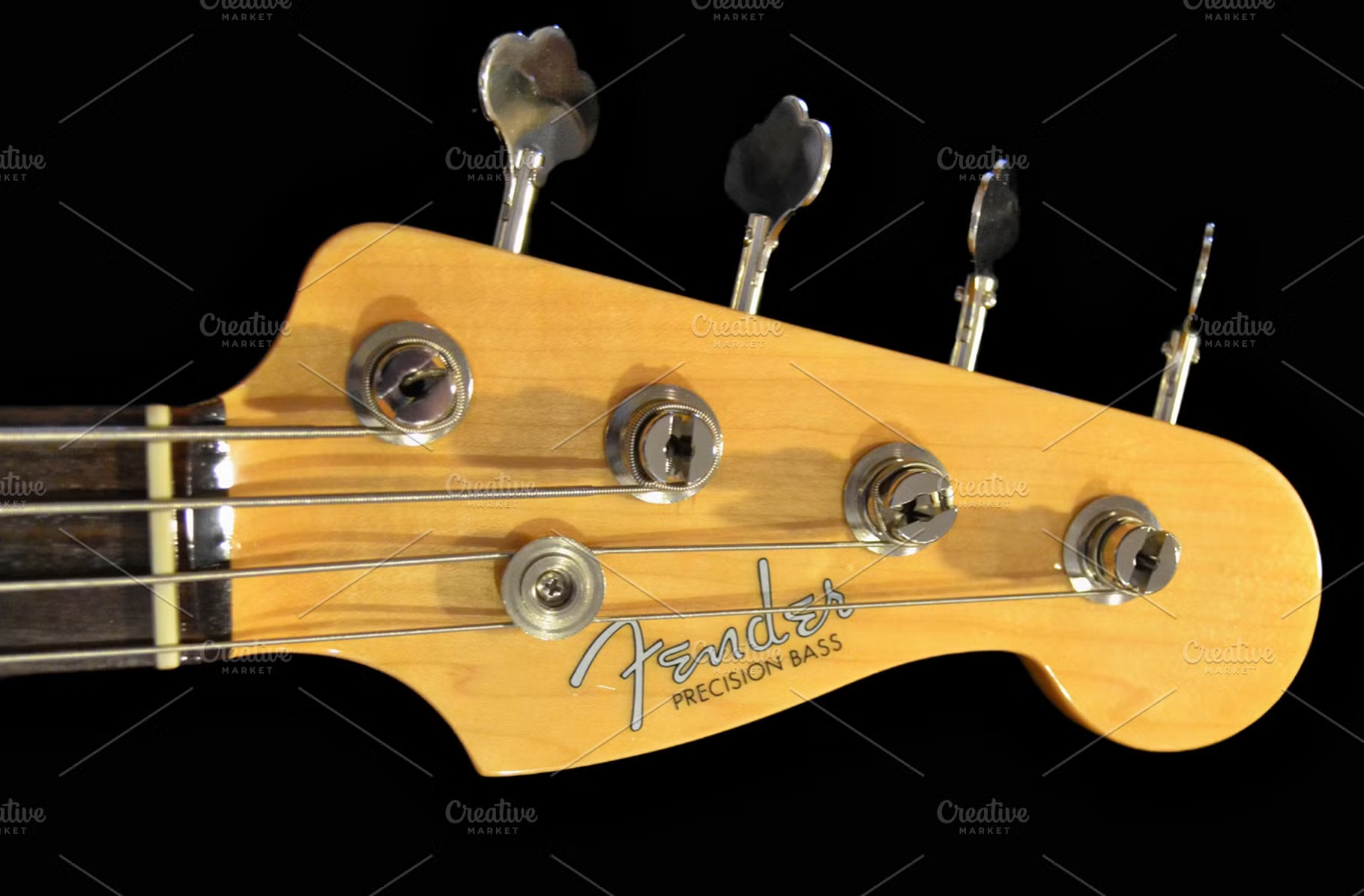
Fender Bass Guitar headstock HighQuality Arts & Entertainment Stock Photos Creative Market
How many types are there? Guitar headstocks come in three different types. Among the headstock types, you will find the Straight headstock, the Tilted-back headstock, and the Scarf headstock. Manufacturers usually vary this construction and customize the design slightly for each brand, but these types of headstocks are common to all brands.

Guitar Headstocks
The headstock is where the strings start (or end, depending on how you look at it) and supports the tuning machines, located at the upper portion of the instrument's neck. It's sometimes where spring-loaded capos are put when not in use, too. Headstocks vary in size and shape, depending on the type of guitar and the manufacturer.

Headstock Epiphone Guitars
You might come across a variety of headstock shapes like 3+3, 4+2, and 6 in-line, for example. Others might be V-shaped, scoop, fan-shaped, or even a reverse headstock. Each of these designs plays a part in the style of the guitar it's attached to. What Is The Purpose of a Guitar Headstock? A guitar headstock serves several essential functions.

3 GUITARS PROFILE REVERSE HEADSTOCK ELECTRIC GUITAR WITH SOFT SHELL CASE, SAMICK S W015 ACOUSTIC
1. Straight (Flat) Headstock This type of headstock design was popularized by Leo Fender himself back in the 1950s. The goal was to come up with a headstock that would be rigid enough, cheap to produce, and that wouldn't waste too much wood in the process. The resulting design was the straight headstock, which Fender used on his Telecaster guitar.

Headstock Gallery Doerr Guitars
Firstly, the guitar's headstock introduces the break angle between the nut and the tuners. This is very important as it immediately impacts an instrument's ability to hold tuning for any duration of time. A famous example is the complaint that has plagued Gibson's open-book headstock design for decades.
The CMS Guitar Headstock decals
The headstock of a guitar is the part of the guitar located at the upper portion of the guitar's neck. They are where the guitar's strings end or start, whichever way you look at it. They also house the tuning pegs, trust rods, and nuts. Here, we'll dive into the guitar's headstock and its role in producing guitar sounds.

Martin 00015SM Solid Mahogany Acoustic Guitar, Slotted Headstock at
Guitars 4°: Guild 11°: Martin [2] 12°: Bigsby, [3] Yamaha SGV [4] 13°: Peavey, [5] Warmoth [6] [7] 14°: Gibson Firebird V [8] and VII, [9] Gibson X-plorer, [10] some vintage Gibson guitars, [11] Washburn, [12] most budget Epiphone replicas of Gibson models [13] 17°: Gibson ES-335, [14] Gibson Les Paul, [15] Gibson SG, [16] Epiphone Casino [17]

Epiphone S310 HSS Black Batwing Headstock Electric Guitar Evolution Music
By Damian Fanelli. published 10 February 2017. (Image credit: Reverb.com) Here's a quiz from our friends over at Reverb.com. Can you correctly identify these 12 guitars from just their headstocks? The logos and model names have been removed to make things a bit trickier. Certainly that won't slow down all the experts who comment on our Facebook.

Guitar Headstock Stock Photo RoyaltyFree FreeImages
23 Guitars With Reverse Headstock. Kramer Assault Plus is one of the rare reverse headstock single-cut guitars. It comes with. Floyd Rose 1000 bridge, Seymour Duncan JB Zebra Coil Humbuckers, and fast K-Speed SlimTaper C neck. Plus, even with all this, it costs well under $1k.
Bass guitar HEADSTOCK'S what's your favorite looking headstock? Page 12
The shape of the headstock has a significant impact on tuning stability and the way the strings slide through the nut grooves. With this in mind, check out the following ultra-cool designs that have found the perfect marriage between artistic design and technical perfection: 1. Michiro Matsuda Michiro Matsuda was born in Nagoya, Japan.

What's with the headstock? Your Next Guitar
The headstock can be simple and functional but can also serve as a beautiful ornamental part of the guitar. The headstock role. First and most important function of the headstock is to house and support the tuners AKA the machine heads or tuning pegs. In most guitars the string run from the bridge, where they are stationary, to the tuners where.

Headstock Guitar inlay, Guitar tuning, Cool guitar
The guitar headstock is the piece of the guitar that is located at the upper end of the guitar neck. This piece is attached and held by the guitar neck and holds the strings. What are the guitar headstock types? There are three main guitar headstock types, the Straight headstock, the Tilted-back headstock, and the Scarf headstock.
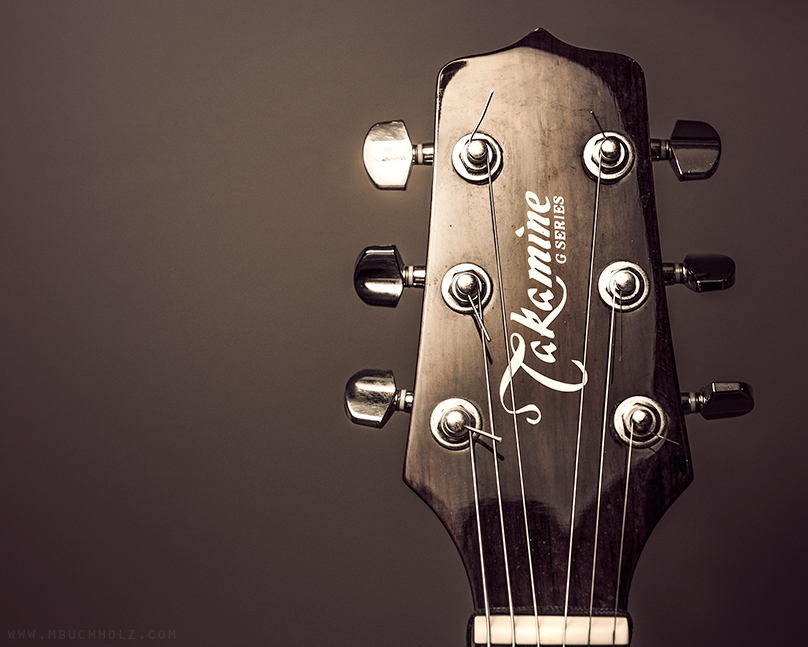
Beautiful Guitar Headstocks Photography M. Buchholz
The guitar as we now know it developed from the Spanish guitar (which evolved from the lute), with the headstock pitch reduced to somewhere between 7 and 17 degrees—or, in the case of Fender, zero. Guitar builders of the last four or five centuries have struck a balance between performance and ease of construction, with Fender taking the.
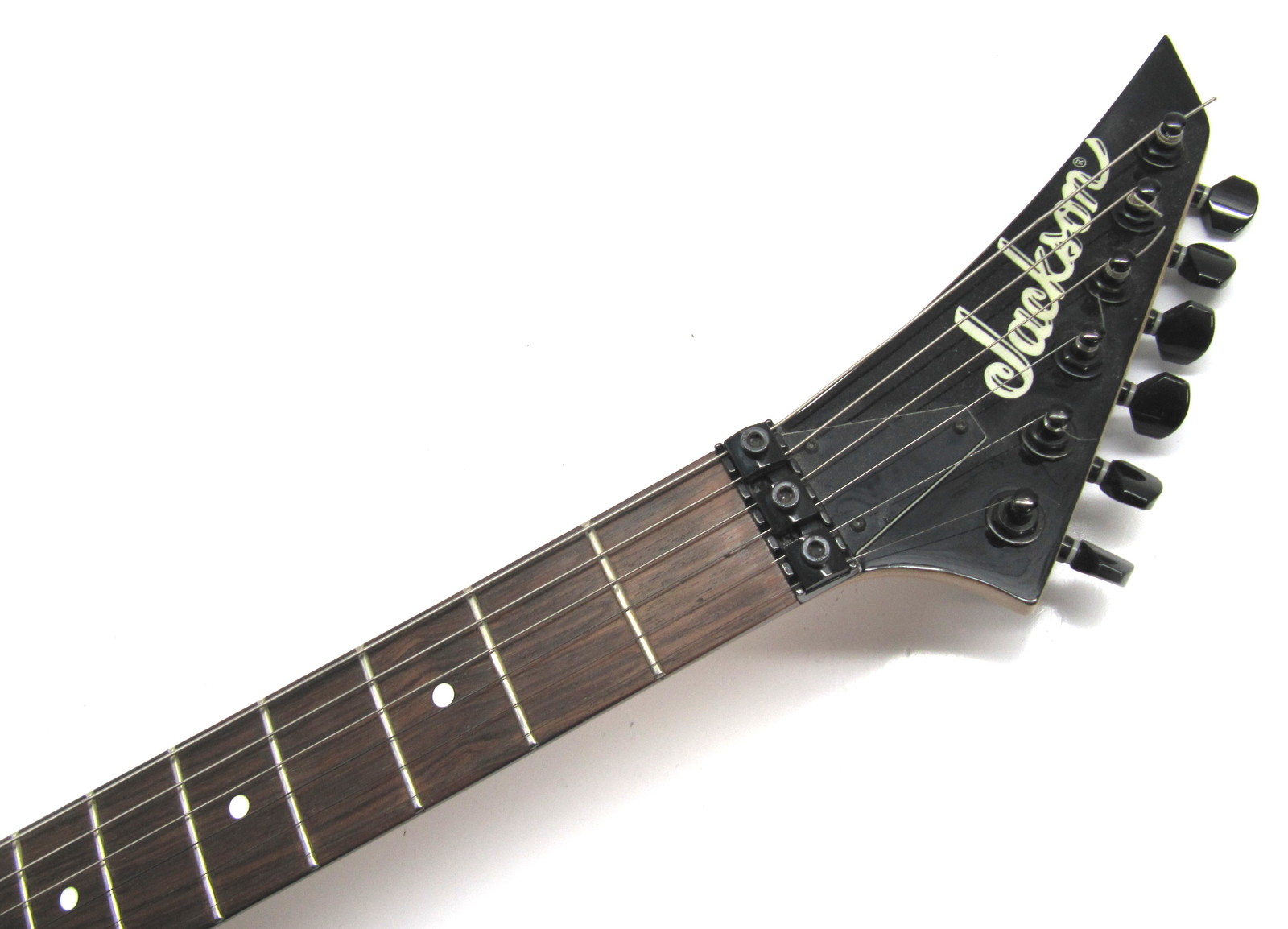
Jackson Guitar Electric Reverse headstock Electric
At its most basic, the headstock is the part of the guitar where the strings terminate and the tuning machines are located. It's typically located at the far end of the guitar's neck and is where you'll find the all-important tuning pegs or machine heads that allow you to adjust the pitch of each string.
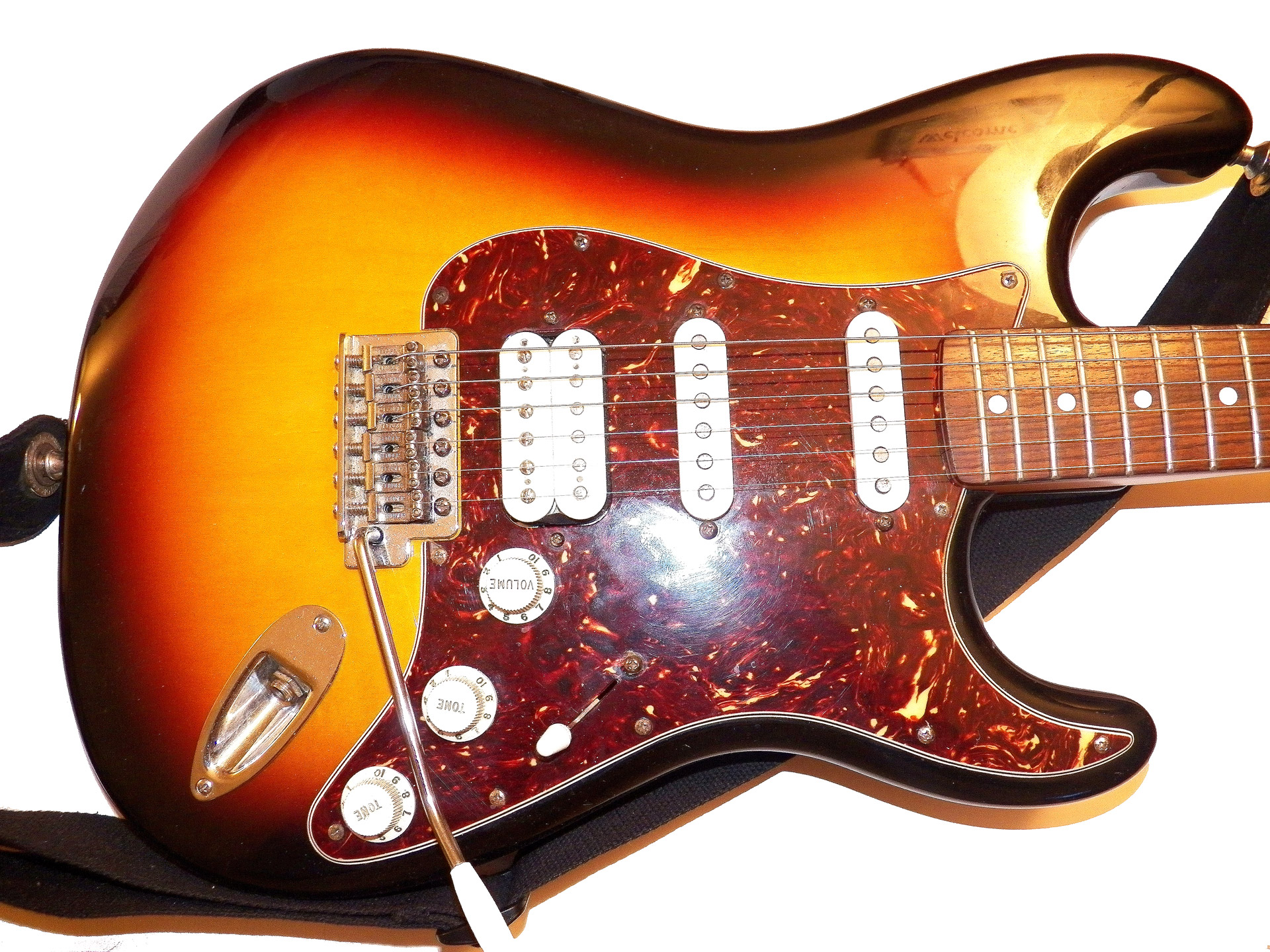
Guitar Headstock Free Stock Photo Public Domain Pictures
This can help place the guitar into a higher player position that could be more comfortable when standing. Secondly, the guitar's headstock actually plays a role in how balanced a guitar feels when in the playing position. While the body should be the heaviest, the headstock can help offset some of the weight.
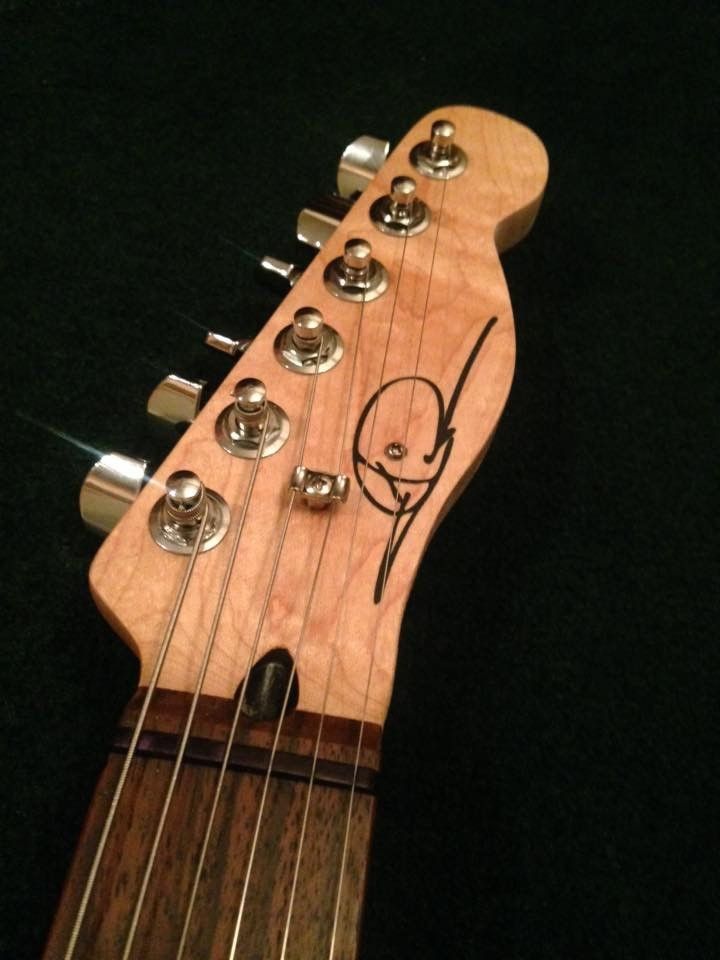
Custom Guitar Headstock Waterslide Decals Bedlam Creations
The headstock is the part where the strings first enter the tuning machines before they are wound to the correct tension.The headstock is located at the end of the guitar neck and helps to hold the tuning machines or tuning pegs in place while allowing you to loosen or tighten the strings to the desired pitch.